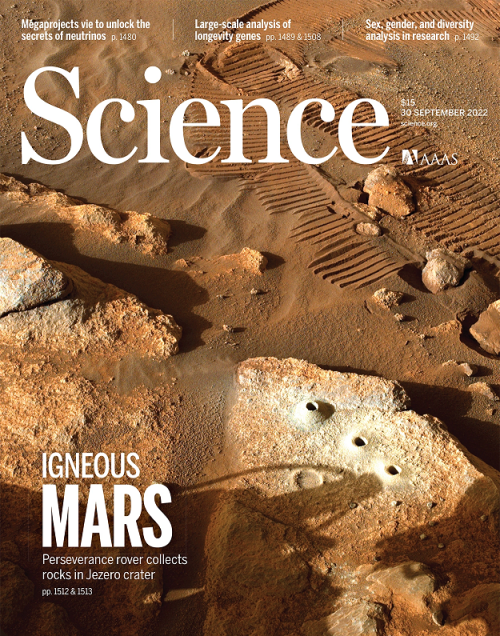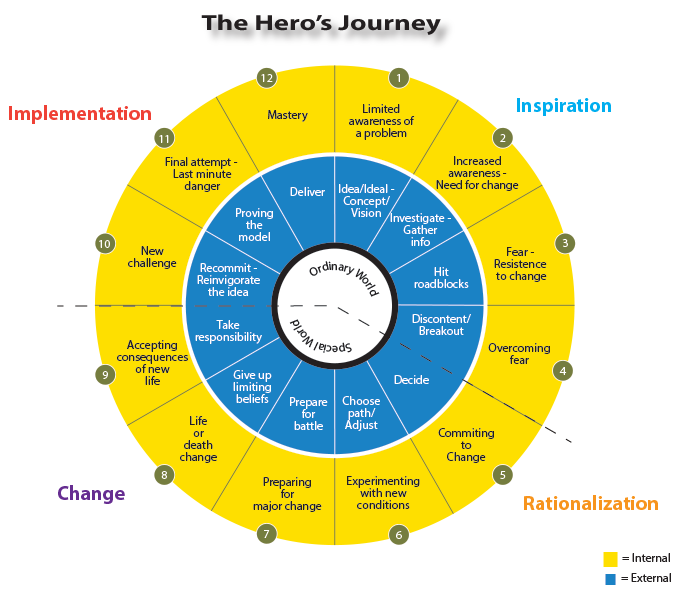
There is a longstanding mystery about why young children pretend so much and what benefits such play provides. The function of adult pretending—in fiction or drama—Is equally mysterious. As pointed out by Alison Gopnik, author of The Philosophical Baby, in the musical “The King and I,” Oscar Hammerstein II wrote that by whistling a happy tune, “when I fool the people I fear, I fool myself as well.” Pretending, for children and even for adults, offers a chance to become the people we want to become.

Almost all of us secretly worry that we’re just impostors—bumbling children masquerading as competent adults.
So, Can an Old Dog Learn New Tricks?
Well, when it comes to pretending, it’s not really about learning a new trick, but rather remembering the old ones. Adults needn’t learn something new, but instead, rekindle what they used to naturally do before they ‘unlearned’ it.
As adults, we tend to get into a rut of routine. We do this so that life is not chaotic and overwhelming. When routine is set, there is less to think about. But this becomes a double-edged sword in the area of escapism. If one doesn’t periodically switch up his routine, in the areas of taking regular vacations, having creative or inventive outlets, participating in group adventures, or the occasional outings, it can lead to isolation, depression, anxiety, and a negative self-view.
A paper in the journal Science – Cortical Map Reorganization Enabled by Nucleus Basalis Activity tells us, they used their research findings to reverse a form of the aging process. It shows that old mice can revert back to learning like young ones.

The study builds on seminal work done by Michael Merzenich at the University of California, San Francisco, and colleagues.
They recorded the electrical activity in brain cells and discovered that young animals’ brains would change systematically when they repeatedly heard something new.
The adult brain not only loses its flexibility but suppresses it. This process may reflect the different agendas of adults and children. Children explore; adults exploit. Adults are more focused on using what they already know to act effectively and quickly. Yet childhood is all about learning. Young brains have high levels of “cholinergic” neurotransmitters that make the brain more plastic, and easier to learn, adapt, and change.
And in their research, Jay Blundon, Stanislav Zakharenko, and Mary Patton at St. Jude Children’s Research Hospital in Memphis, Tenn., endeavored to restore early-learning abilities to adult mice. In all of these cases in the St. Jude study, the adult brains started to look like the baby brains.

The research suggests that these results may help in some disorders that come with aging. In the areas of cultivating genius, it is important to remap one’s routine mindset and find new avenues, new stimuli, and new challenges that spark up and give that mental cog more plasticity.
Can Pretending Make You Smarter?
A study by Rachel White of the University of Pennsylvania, Stephanie Carlson of the University of Minnesota and colleagues—describe what they call “The Batman Effect.”

Children who pretended that they are Batman (Wonder Woman, Dora the Explorer, or other heroic figures) proved to do better on measures of self-control and persistence.
In the first study, published in 2015 in the journal Developmental Science, the experimenters gave 48 5-year-olds increasingly challenging problems that required them to use their skills of control and self-inhibition. For example, researchers might ask a child to sort cards according to their color and then suddenly switch to sorting them by shape. Between the ages of 3 and 7, children gradually get better at these tasks.
The experimenter then told some of the children to pretend to be powerful fictional characters as they completed these tasks. The children even got to put on costume props (like Batman’s cape or Dora’s backpack) to help the pretending along. The experimenter then said, “Now, you’re Batman! In this game, I want you to ask yourself, ‘Where does Batman think the card should go?” The pretenders did substantially better than the children who tried to solve the task as themselves.
How Much do we Learn from Play?
Any preschool teacher will tell you that play is a crucial part of the development process. It’s how we begin to learn, understand, connect things, and develop ideas.
As we get older, these developmental concepts are slowly replaced by what are deemed more pragmatic or valuable tools of learning, forgoing the more playful, creative, and even ingenious types of thinking.
Once children get into higher levels of education, less emphasis is placed upon creative and playful, and more focus is directed toward practical and pragmatic thinking.
The irony is that in today’s world of overwork, overstress, workplace competitiveness, and long hours, more and more companies are beginning to see the value of adding creative play back into the workplace environment.
Companies that encourage, foster, and promote play in the workplace have found that ideas, focus, collaboration, input, and project outcomes are all significantly improved. And their bottom-line productivity increases dramatically.
Recapturing a Sense of Awe and Wonderment
As hardworking, responsible adults living in a society of survival, commitment, and obligation, committing time for ourselves becomes finite. We also lose our ability to be ‘awe-struck.’
We have less time to wander into the backyard and examine the flowers, birds, and bees close up, marveling at life going on around us. We’ve forgotten how to be astonished at the beauty of a deep orange and red sky that embraces a setting sun. We’ve forgotten the simple pleasures of licking melting ice cream dripping down the back of our hand. We no longer sit and watch a colony of ants scurrying back and forth, carrying sticks and discarded food down a hole in the ground.
Yet we admire those who are still able to do this, those people who seem to find both the time and the necessary bandwidth to invite a sense of wonder and awe into their lives and still make time for the art of living.
And as we get into what we call our ‘golden years’ we laugh at the silly, unnecessary amounts of time we devoted to everything that forced us to place our creative development on hold. When we hit our fifties, sixties, seventies, and eighties, we come to the awareness that life was put on hold in order just to survive and get by. Some have regret, others suddenly find peace, serenity, and a meditative state of being within, and even others work to regain that lost sense of awe that initially drove their thoughts, ideas, and the development of unique perspective.
The Hero’s Journey of Pretending
Joseph Campbell is the father of The Hero’s Journey, an iconic philosophy of the inner hero within all of us.
Known as the ‘Monomyth,’ Campbell’s work was originally based upon his research for his book, The Hero with a Thousand Faces, in 1949. The Hero’s Journey, initially influenced by Carl Jung’s analytical psychology, shows us how one becomes a hero by breaking the myth of his current life and venturing into the unknown.
This idea has become a philosophy found in many iconic stories and fables throughout the world and eventually used in plays and movies about the unlikely hero.

The concept and process are simple:
- The hero (you), realizes that there is something missing (a missing piece of his/her life’s puzzle).
- You decide to explore (risk) venturing out of your comfort zone.
- You encounter challenges (the unknown) that make you question your decision.
- You ultimately move forward regardless of doubt (pushing past fear).
- You encounter new ideas (that threaten your current beliefs).
- You decide to learn something new and unfamiliar (acquire untapped skills and potential).
- You learn to understand these newfound skills (developing new levels of ability).
- You return home (metaphorically) to a new you (you’ve tapped into your stronger self).
And the question to ask is, “how does this relate to pretending?”
The answer is in understanding the two mindsets. The rational mind would not endeavor to begin such a risky journey because it draws conclusions as to the potential for failure. In this way, the rational mind never stretches beyond certain levels of comfort and familiarity.
The intuitive mind is more explorative, and therefore willing to take an adventurous risk. In order to do this, it requires the ability to imagine something new and different, to conjure new ideas, and to manifest or ‘pretend’ the potential outcome by seeing oneself on the path to discovery.
Rational thinking does not know the outcome and therefore hesitates and resists. Intuitive ability seeks the unknown and is, therefore, able to learn and grow along the journey.
Think Lewis and Clark, Darwin, Curie, Earhart, Tesla, Buddha, or Gandhi. None of these explorers knew what to expect from what they’d encounter. Yet the adventure of the unknown still called to them.
How is Pretending Defined?
Pretending is the ability to imagine, contemplate something new or created, experiment, invent, discover, the courage to try something different, fantasize about a reality yet unknown, stretch beyond the boundaries of comfort, play with silly ideas and concepts, be willing to fail and try again, and have fun during the adventure process.
Pretending is a choice. Many people today say they don’t have time for silly, idle ideas like pretending. Their work, life, and obligations have little room for such unnecessary thoughts of whimsy.
However, these same people, later in life, regret they never took the time to learn or incorporate these unlikely gifts into their lives sooner.
The truth is that while there is no right or wrong on how to live, survive, and provide for oneself and one’s family, adding and encouraging the cultivation of an intuitive and creative mindset can only benefit and increase one’s lifestyle, not diminish it.
My dear friend Rona Lewis of The Playful Mind Project (https://playfulmindproject.com/) inspired some great tips to get you started on the road to pretending…
Tips for fostering a Pretender’s Mindset:
1: The 3-Legged Dog – Have you ever seen a dog with three legs? Doesn’t complain, doesn’t compare himself to the four-leg dogs, he just wants to have fun, play, and be part of the scene. Pretending isn’t always about making things up. Sometimes, like the three-leg dog, it’s about how you see yourself. Have you ever heard the phrases, “Act as if,” or “Fake it til you make it?” Powerful people use these tools all the time as the catalyst to get where they want to ultimately go. Reggie Dwight pretended he was someone else… Elton John. Stefani Germanotta became Lady Gaga. Pretending is not about fooling yourself or others, it’s about using your imagination to help you get to a much higher level.
2: Don’t compare! – You can’t pretend, imagine, create, or invent when comparing yourself to others. When your ego is engaged, all you can think about is a) How others perceive you, and b) how you view yourself in comparison to other people. In other words, you end up spending more time FINDING your place in the world, and less time CREATING your place in the world. When you are in this state there’s no room for the creative mind to come out. There’s no time to develop new ideas, explore the unknown, or experiment with what you might be capable of. Kill the need to compare or get validation and acceptance from outside sources, and just go and pretend, invent, discover, and wonder, much like Einstein, da Vinci, Magellan, Galileo, or Newton did.
3: Reinventing the Inner-Child – In psychological terms, when someone is learning to handle stress, overwhelm, anxiety, self-doubt, and feelings of low self-worth, they are often introduced to their inner child in order to get in touch with what gave them their feelings of low self-esteem in the first place.
Personally, I enjoy watching cooking shows, especially the ones where they have the chefs deconstruct and reconstruct a popular food. So, for this exercise, we are going to reconstruct your interpretation of your inner child.
He or she should not be thought of as needy. Why? Because young children, between the ages of one-ten, are anything but. Instead, they are curious, adventurous, willing to attempt anything new (like walking), experimenting, playing, being imaginative, and most of all, awe-struck – or like I enjoy saying, ‘gobsmacked.’ And as they get older pretending becomes an important part of their development. They dress up, imitate their parents, play pirates or princesses, and are extremely uninhibited about wearing costumes while out in public. It’s only once we become adults that we begin to criticize and judge ourselves and that’s where low self-esteem can emanate from. As an adult, you need to deconstruct that misguided self-impression and construct a new, more playful, carefree, and thereby more powerful and adventurous you.
4: Go Big or Go Home – Neil Armstrong got it backward… “That’s one small step for man, one giant leap for mankind.” It should have been, “That’s one small step for mankind, one giant leap for man.” Why do I make this outlandish statement?
If you think about it, these astronauts took a daring step by placing themselves in a tin can on top of 950,000 gallons of volatile, extremely combustible rocket fuel. That, my friend, is a giant leap of faith.
The point is, whatever you decide to do in life, do it big, do it to the best of your ability, and if you fail, get up (no one is looking at you or comparing), and do it again until it works, or you find a better way.
This is what amazing people do every day, public speakers, inventors, builders, scientists, doctors and nurses, explorers, entrepreneurs, and sometimes, just sometimes, the new, unsullied, untarnished politician.
What does this have to do with pretending? Again, pretending is about imagination, ideas, dreams, courage, and the willingness to fail. All of this lives in the realm of pretending.
I hope you’ve learned how powerful pretending can be and how vital it is to our growth, evolution, and development. Don’t wait until it’s too late, and don’t ever live with regret. In simple terms, pretending is where the best disruptions and innovations come from. And the secret is that pretending resides in your heart. You can open it up to see what you’re really capable of, or you can lock it up and throw away the key. The choice is always yours to make.
FOOTNOTES:
1: Cortical Map Reorganization Enabled by Nucleus Basalis Activity, Kilgard, Michael P., and Merzenich, Michael M., Science, 13 Mar 1998, Vol 279, Issue 5357, pp. 1714-1718
https://www.science.org/doi/abs/10.1126/science.279.5357.1714
2: Rejuvenation of plasticity in the brain: opening the critical period, Patton, Mary, Blundon, Jay, & Zakharenko, Stanislav, Current opinion in neurobiology (2018). 54. 83-89. 10.1016/j.conb.2018.09.003.
3: The “Batman Effect”: Improving Perseverance in Young Children, White, Rachel E., Prager, Emily O., Schaefer, Catherine, Kross, Ethan, Duckworth, Angela L., Carlson, Stephanie M. Child Development, September/October 2017, Volume 88, Number 5, Pages 1563–1571
https://srcd.onlinelibrary.wiley.com/doi/10.1111/cdev.12695
4: The Playful Mind Project, Lewis, Rona, Brustad, Jessica
https://playfulmindproject.com/